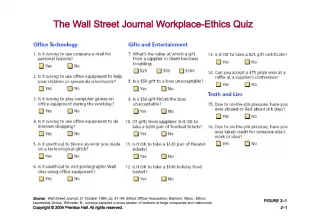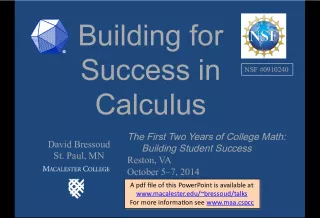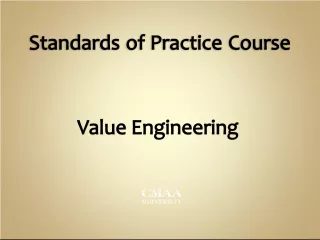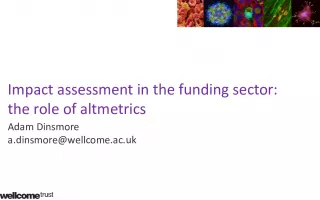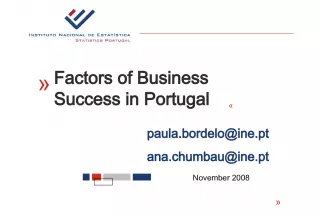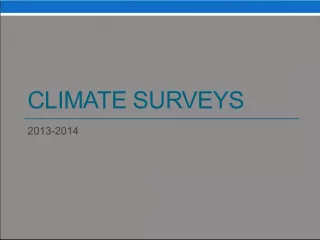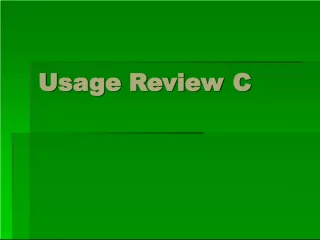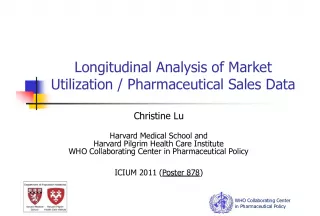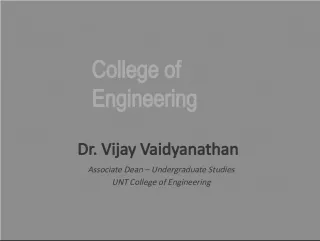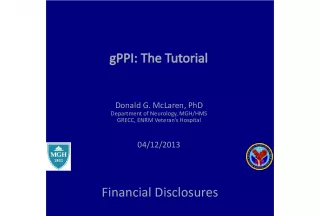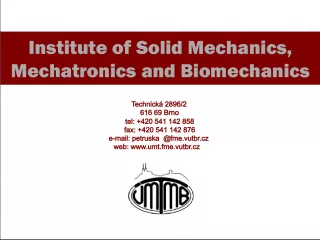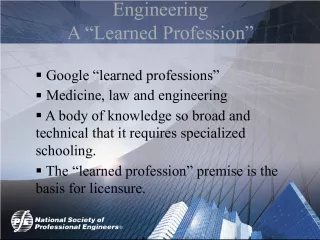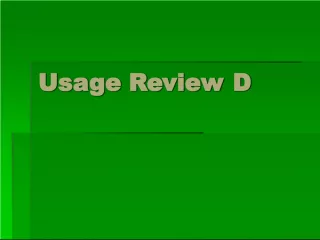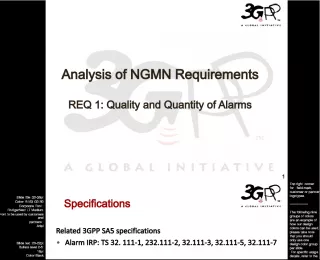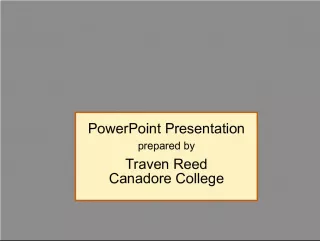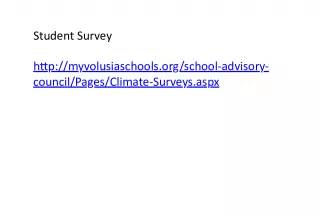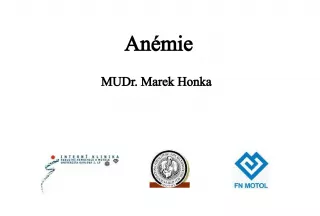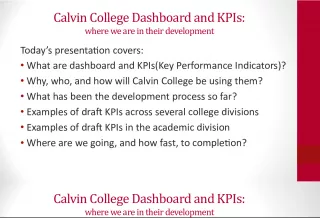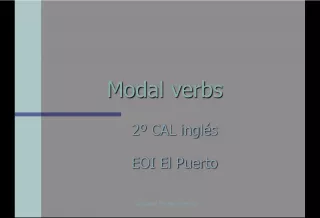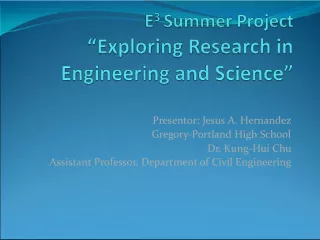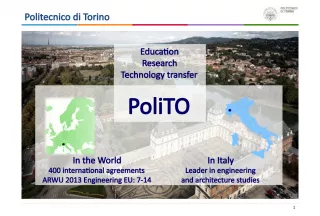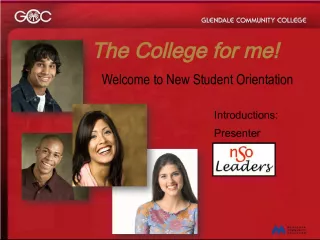Altmetrics Usage in UT Arlington College of Engineering: Survey Results and Analysis
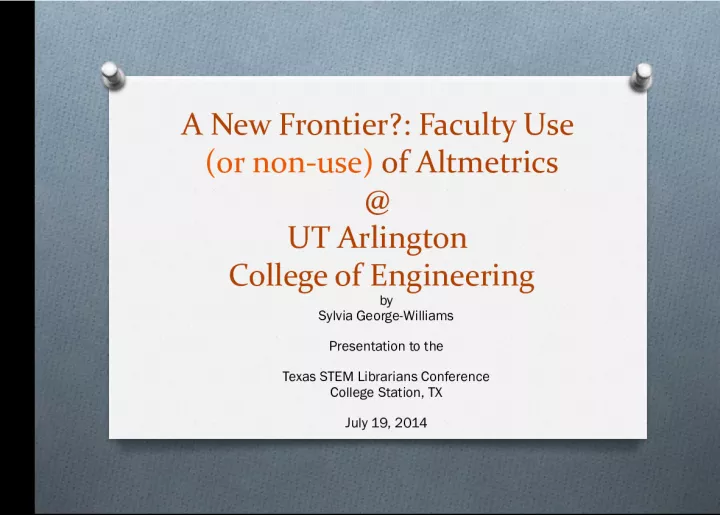

This presentation by Sylvia George Williams explores the faculty use (or non-use) of altmetrics in UT Arlington's College of Engineering. The presentation includes an overview of the university and survey results, analysis, and next steps.
- Uploaded on | 0 Views
-
 gesa
gesa
About Altmetrics Usage in UT Arlington College of Engineering: Survey Results and Analysis
PowerPoint presentation about 'Altmetrics Usage in UT Arlington College of Engineering: Survey Results and Analysis'. This presentation describes the topic on This presentation by Sylvia George Williams explores the faculty use (or non-use) of altmetrics in UT Arlington's College of Engineering. The presentation includes an overview of the university and survey results, analysis, and next steps.. The key topics included in this slideshow are altmetrics, faculty use, survey results, UT Arlington College of Engineering, research university,. Download this presentation absolutely free.
Presentation Transcript
1. A New Frontier?: Faculty Use (or non-use) of Altmetrics @ UT Arlington College of Engineering by Sylvia George-Williams Presentation to the Texas STEM Librarians Conference College Station, TX July 19, 2014
2. Outline O Overview of UT Arlington O Background O Reasons for survey O The survey O Results O Analysis O Next steps
3. Overview of UT Arlington Comprehensive research uni 2nd largest in the UT System 6th largest in Texas 180+ degree programs 10 schools and colleges 33, 000+ students 120+ countries
4. Background TechnoScholar (series of workshops) Related to technology and research Open to faculty and graduate students Not a Fear Factor Impact Factor/publishing mainly engineering/science participants Focus on traditional metrics, but mention of alternative metrics
5. Reasons for Survey Most important Better prepare for workshop Other: Rising interest in altmetrics Conversations with new faculty Understand what goes on in the college
6. The Survey October 2013 Quick survey (survey monkey) 8 questions Department Chairs 7 departments (BioE, CE, CSE, EE, IMSE, MAE, MSE) Two weeks
7. The Results Responses O 5 returned: BioE, CSE, IMSE, MAE, MSE O No response from: CE, EE
8. Results (cont.) Q. 1. All consider impact when hiring, & for promotion/tenure Q. 2. All use traditional methods (journal/author impact) None use altmetrics Q. 3. Zero responses to specific sources of altmetrics used (blogs, twitter, etc.)
9. Results (cont.) Q. 4. How they felt about the use of altmetrics to measure impact in scientific community: 60% - lower standard 0% - raise standard of scholarship 20% - provide more opportunities for scholars to get cited 40% - provide additional avenues for finding more articles 20% - didnt know
10. Q. 5. Thoughts about the altmetrics movement 20% - a fad 0% - here to stay 80% - not sure Q. 6. Use of altmetrics as another tool to measure own impact 0% - will use 80% - no 20% - not sure Results (cont.)
11. Q. 7. Would like to know more about altmetrics 20% - yes 60% - no 20% - not sure
12. Q. 8. Other thoughts about the use of altmetrics perhaps more appropriate for fields other than engineering Social media insufficient for understanding true importance of someones research Ideas without true substance can be hyped Long-term impact and importance is of little interest to social media audience, but purpose of research is to address long-term and ongoing problems Results (cont.)
13. Analysis Mind made up about what altmetrics are? If Department Chairs not interested, what does that mean for younger faculty? Can Department Chairs be made to change their minds? Interest in altmetrics varies by discipline?
14. Next Steps What should we do? More survey?? Find out how other faculty feel? O Faculty-wide survey on scholarly communication
15. The End Questions??
16. Appendix List of questions asked: 1. My department considers a scholar's impact in the scientific community in: a. The hiring process b. The promotion and tenure process c. Both d. Neither 2. If your department does consider a scholar's impact, what methods do you use to measure this impact? a. Traditional methods (journal impact factor) b. The newer altmetrics (mention in social media - blogs, twitter, etc.) c. Both d. Neither e. Other (please specify)
17. 3. If you chose "The newer altmetrics" above, what specific sources do you use to measure this impact? a. Mention in social media (facebook, twitter, blogs, etc.) b. Mention/appearance in traditional media (mention in newspapers/magazines, appearance as an expert on tv/radio shows) c. Mention in online reference managers (Mendeley, CiteULike, etc.) d. None of the above e. All of the above f. Other (please specify) 4. As a senior scientist/scholar/researcher, I feel that the use of altmetrics to measure impact in the scientific community will: a. Lower the standard of scholarship b. Raise the standard of scholarship c. Provide more opportunities for scholars to get cited d. Just provide authors and users additional ways to find article metrics e. Don't know
18. 5. As a senior scientist/scholar/researcher, I think this movement towards the use of altmetrics to measure scholarly impact is: a. A fad (will pass away soon) b. Here to stay c. Not sure 6. As a senior scientist/scholar/researcher, I will definitely use altmetrics as another tool to measure my impact. a. Yes b. No c. Not sure 7. I would like to know more about altmetrics. a. Yes b. No c. Not sure 8. Please share any other thoughts about the use of altmetrics in measuring impact in the scientific community that you think is important.
